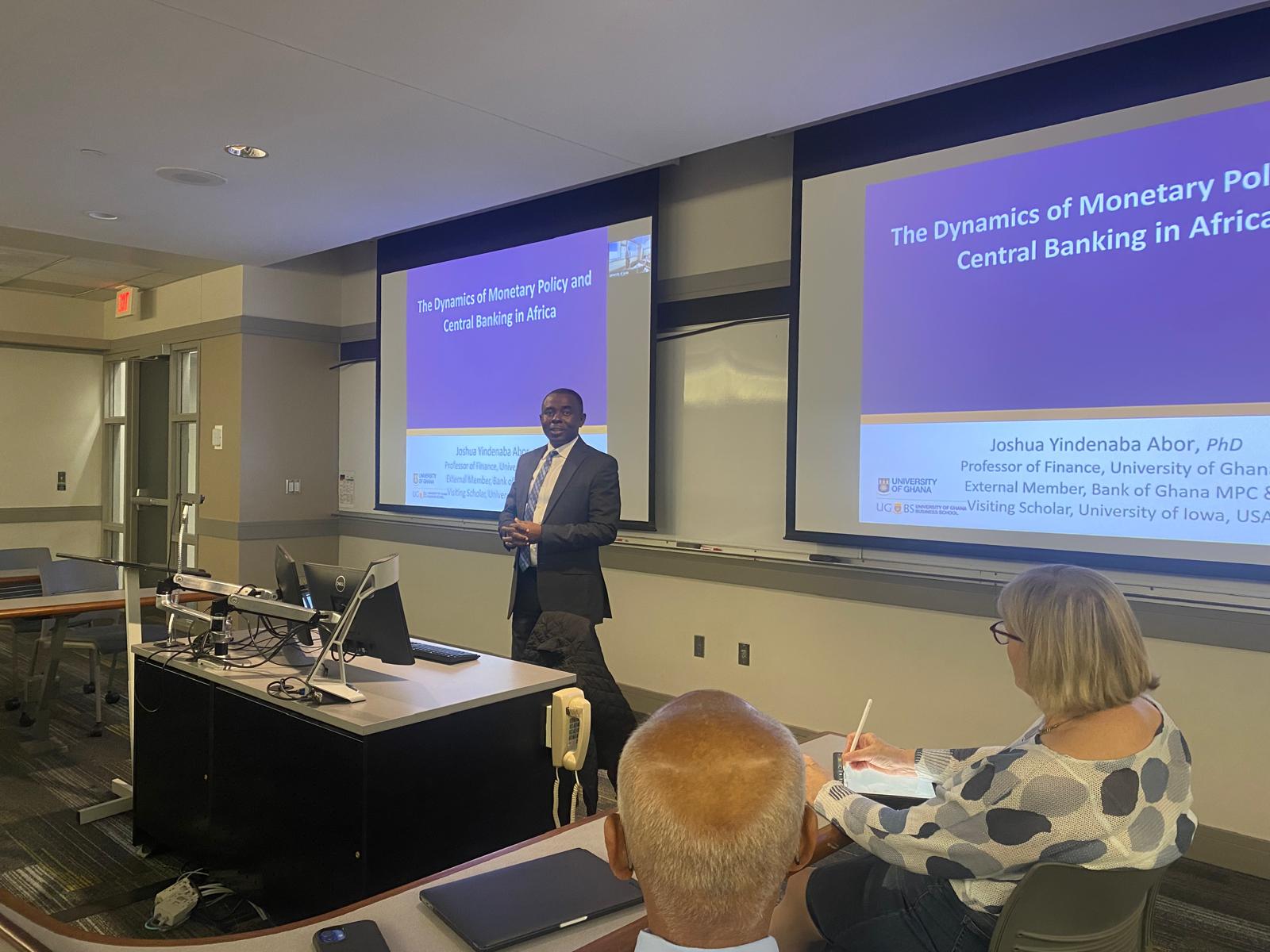
UGBS Professor of Finance, Joshua Y. Abor, Delivers a Lecture on the Dynamics of Monetary Policy and Central Banking in Africa at the University of Iowa, USA
Monetary Policy and Central Banking in Africa at the University of Iowa, USA Prof. Joshua Yindenaba Abor, a renowned Professor of Finance at the University of Ghana Business School (UGBS), delivered a compelling lecture on “The Dynamics of Monetary Policy and Central Banking in Africa” at the University of Iowa, USA, where he is currently a Visiting Scholar. The lecture attracted academics, students, and policy enthusiasts interested in Africa’s evolving financial systems.
Prof. Abor, who also serves as an External Member of the Bank of Ghana’s Monetary Policy Committee, traced the historical development of central banking from its origins in Europe over 400 years ago to the rise of central banks in Africa, particularly during the post-independence era of the 1950s and 60s. He noted that the South African Reserve Bank, established in 1921, was the first central bank on the continent.
In his presentation, he explained that the objectives of monetary policy include ensuring price stability, maintaining financial and exchange rate stability, achieving balance of payments equilibrium, and promoting employment and output growth. He noted that while these goals are shared globally, central banks in Africa face unique challenges such as fiscal dominance, weak institutional frameworks, and underdeveloped financial markets.
He further examined the progression of monetary policy arrangements in Africa from currency boards in the 1970s, to financial repression in the 1980s, and to inflation targeting regimes in the 2000s. Using Ghana as a case study, he described the country’s monetary policy evolution from a controlled regime before 1992, through monetary targeting (1992–2002), to the adoption of inflation targeting from 2002, which was formally announced in 2007.
Prof. Abor also emphasised that the success of inflation targeting depends on several factors, including central bank independence, the absence of fiscal dominance, and the availability of timely and reliable macroeconomic data. He added that breaking inflation inertia and managing inflation expectations remain key challenges for African monetary authorities.
In conclusion, he called for strengthened coordination between fiscal and monetary authorities, the establishment of an independent Fiscal Responsibility Council, and the continuous development of financial markets to enhance the effectiveness of monetary policy in Africa.
